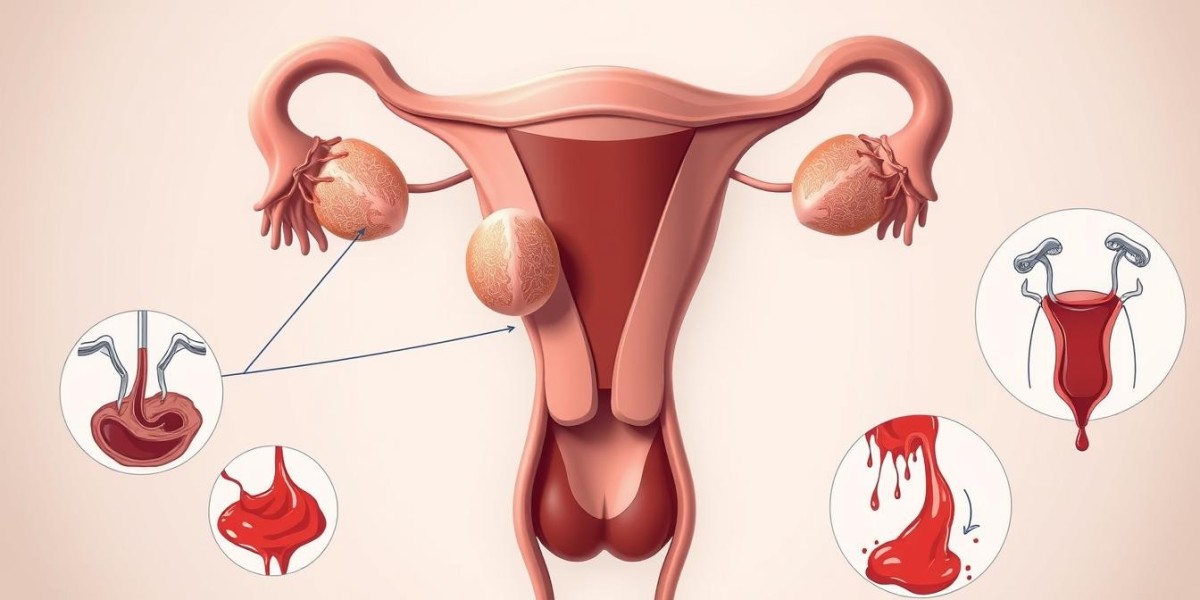Uterine fibroids are a common gynecological issue affecting many women during their reproductive years. While many fibroids are harmless and go unnoticed, some can have a significant impact on a woman's fertility. As a leading Uterine Fibroids Doctor in Jaipur, I often see patients who are unaware of how fibroids may interfere with their ability to conceive.
Let’s explore how fibroids can affect fertility, what signs to look out for, and what treatment options are available.
What Are Uterine Fibroids?
Uterine fibroids, also known as leiomyomas or myomas, are non-cancerous growths that develop in or on the uterus. They vary in size, from as small as a seed to as large as a melon. While the exact cause isn’t fully understood, factors like hormonal imbalance and genetics are believed to play a role.
Some women may have a single fibroid, while others develop multiple. Their location—whether inside the uterine cavity, within the uterine wall, or on the outer surface—plays a crucial role in whether or not they affect fertility.
How Uterine Fibroids Affect Fertility
Not all fibroids cause infertility, but their size and position can disrupt the normal functioning of the reproductive system. Here are a few ways fibroids can impact fertility:
1. Interference with Sperm Movement or Egg Implantation
Fibroids located inside the uterus (submucosal fibroids) can change the shape of the uterine cavity, making it difficult for sperm to travel or for a fertilized egg to implant successfully.
2. Blocked Fallopian Tubes
Larger fibroids, particularly those on the outer surface of the uterus, can press against the fallopian tubes, leading to blockages that prevent fertilization.
3. Changes in Blood Flow
Fibroids can disrupt the blood flow to the endometrial lining, affecting embryo implantation and increasing the risk of miscarriage.
When Should You Seek Medical Help?
If you’ve been trying to conceive for over a year without success—or six months if you're over 35—it may be time to see a specialist. Women experiencing symptoms such as heavy periods, pelvic pain, frequent urination, or bloating should also seek an evaluation.
As an experienced Uterine Fibroids Doctor in Jaipur at AEIRC (Advanced Endovascular & Interventional Radiology Center), I perform thorough evaluations using imaging techniques such as ultrasound and MRI to identify the presence and impact of fibroids.
Treatment Options for Uterine Fibroids
Fortunately, there are several treatment options for fibroids that may be affecting fertility:
1. Uterine Fibroid Embolization (UFE)
A minimally invasive procedure that blocks the blood supply to fibroids, causing them to shrink. This is one of the key services we offer at AEIRC.
2. Myomectomy
Surgical removal of fibroids, preserving the uterus. This can be performed laparoscopically in many cases.
3. Medications
Hormonal therapies can manage symptoms and temporarily shrink fibroids but are not suitable for long-term fertility goals.
Every case is unique, so it's crucial to personalize the treatment plan based on the patient’s symptoms, fibroid characteristics, and reproductive goals.
Take Charge of Your Fertility
Fibroids don’t always mean infertility—but they can be a barrier in some cases. Early diagnosis and timely intervention make a significant difference in preserving fertility and improving quality of life.
If you’re facing fertility challenges and suspect fibroids might be a factor, consult with an experienced Uterine Fibroids Doctor in Jaipur. At AEIRC, we offer advanced diagnostic tools and minimally invasive solutions to support your reproductive health journey.
Also, if you or someone you know is dealing with varicose veins, don’t ignore the symptoms—Varicocele Treatment in Jaipur is also available at our center for male reproductive health issues.






